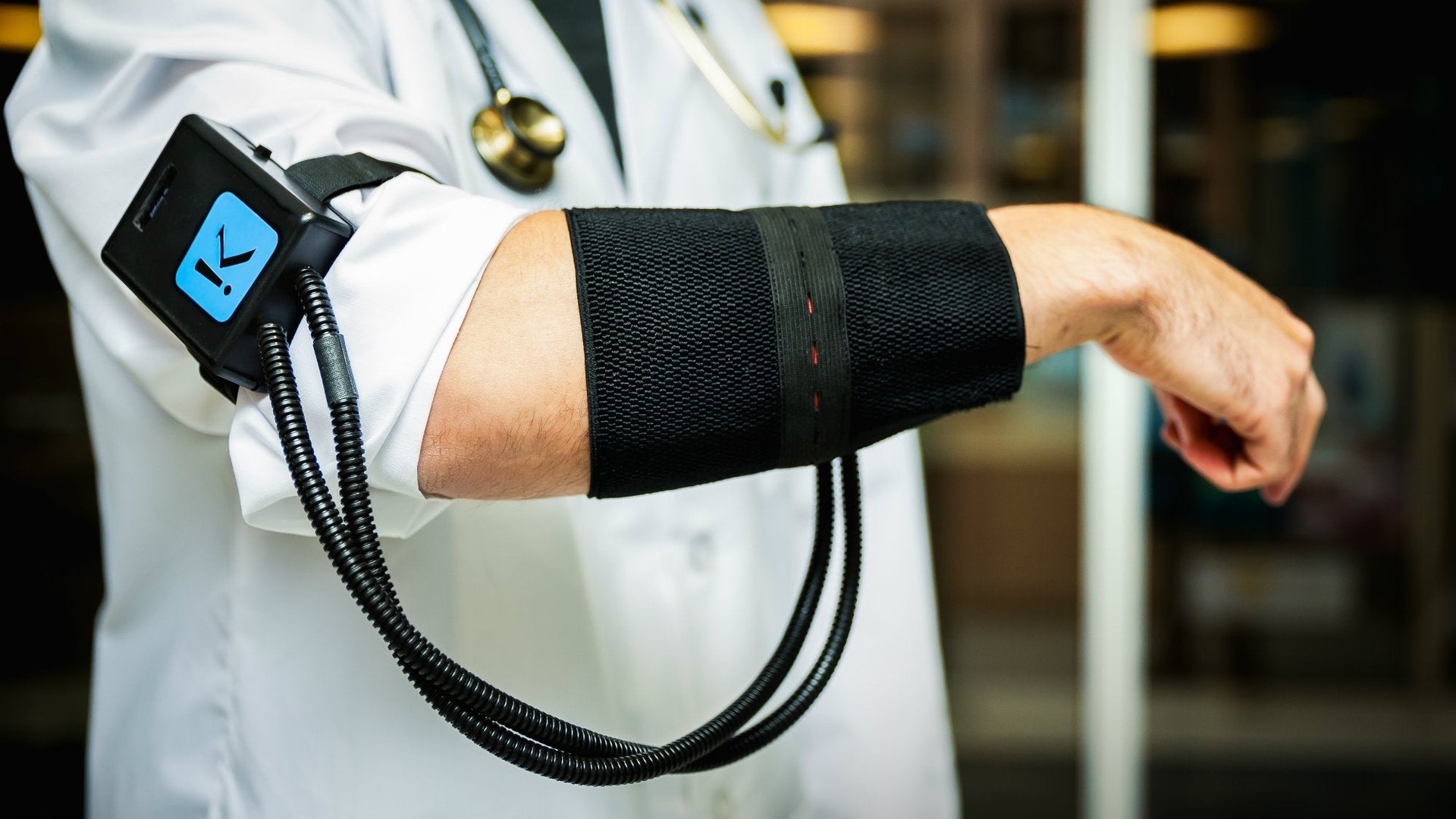An experimental device lets doctors actually feel their patients’ symptoms
Any neurologist can list off the physical symptoms a patient with Parkinson’s disease will report, such as tremors, involuntary motions, and fatigue. But not every doctor is capable of empathizing with the life-altering affects those symptoms have on the patient’s life. Multiple studies have found that the patients of empathetic doctors fare better in the treatment of diseases from diabetes to depression. When doctors don’t empathize, patients suffer.


Any neurologist can list off the physical symptoms a patient with Parkinson’s disease will report, such as tremors, involuntary motions, and fatigue. But not every doctor is capable of empathizing with the life-altering affects those symptoms have on the patient’s life. Multiple studies have found that the patients of empathetic doctors fare better in the treatment of diseases from diabetes to depression. When doctors don’t empathize, patients suffer.
Designers at Klick Labs, a Toronto-based medical consulting firm, undertook an experiment to address this problem. They came up with a device called a SymPulse that gets a doctor, caregiver, or other person without Parkinson’s disease to experience a patient’s tremors in real time
The patient wears an armband that records, through electromyography, the muscle contractions in their arm during one of the involuntary muscle tremors that are among the disease’s primary symptoms. The data is then transmitted via Bluetooth to a SymPulse armband worn by a person without Parkinson’s. The SymPulse translates it into pulses of electricity sent through the wearer’s skin—similar in intensity to the electric stimulation pulses used in physical therapy—causing their arm muscles to contract and spasm as they would during a Parkinson’s tremor.
Feeling a tremor underscores the challenge of living with the disease in a way that simply observing one can’t. It’s impossible to comfortably hold a pen or a cup. The constant involuntary muscle contractions are exhausting. Taking the cuff off after just a few minutes is a relief.
The lab is currently running a study to quantify the increase in users’ empathy after wearing the sleeve and how long the boost lasts, vice president Yan Fossat says. The device isn’t being marketed for sale at the moment.
Empathy isn’t pity, or the making of sympathetic noises. It’s the ability to truly imagine oneself in another person’s situation, and to communicate a sense of understanding and concern. It comes more naturally to some than others, but the good news is that empathy is an acquired skill that can be strengthened through training. Empathy training for doctors focuses on “how to show up, not what to say,” psychiatrist Helen Riess, who runs the training program at Massachusetts General Hospital, told the Atlantic.
Nothing speeds up that learning like first-hand experience, as a Pennsylvania doctor named Carl Norden discovered when he was diagnosed with cancer. In a 2016 essay in the Annals of Internal Medicine, Norden wrote of being rebuffed by an oncology nurse when he complained that chemotherapy left a metallic taste in his mouth.
“Now I understand what my patients who took antibiotics and got taste perversion were complaining about. It had been all too easy for me to say, ‘But this drug is saving your life,’ with the unspoken, ‘Stop whining,’” he wrote. “I am a better doctor and human being as a result of enduring this illness—I just wish there had been an easier way to get to that place.”